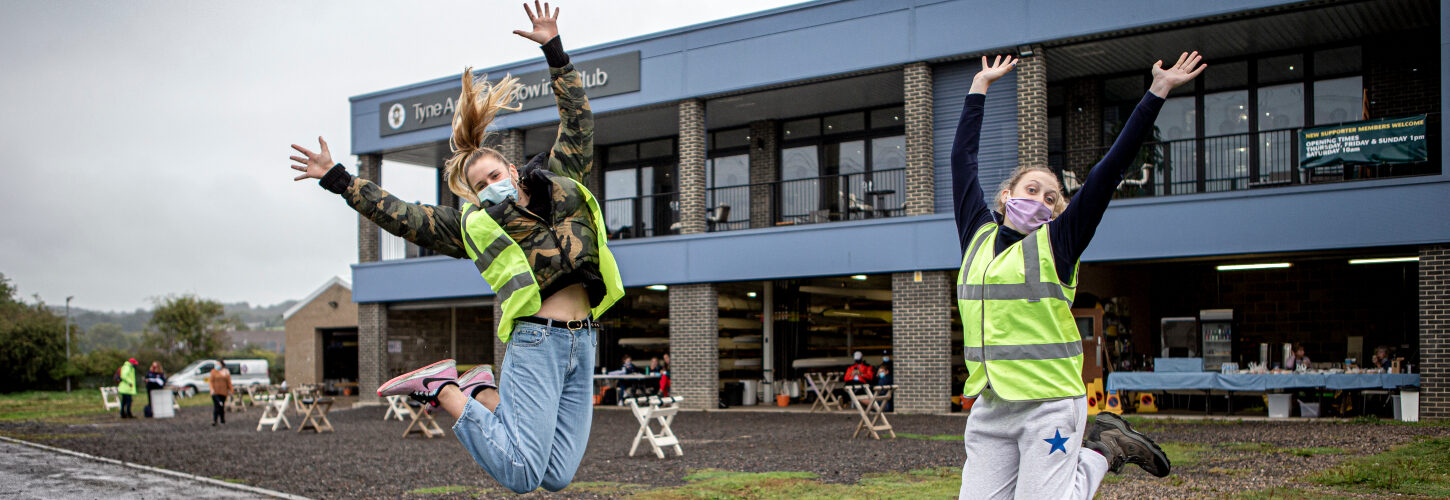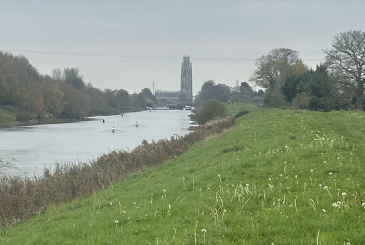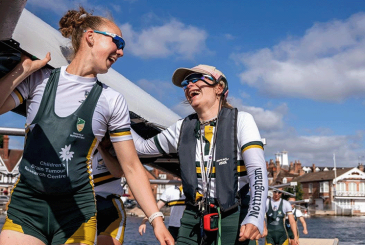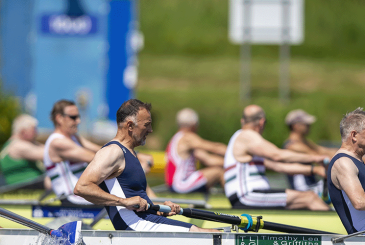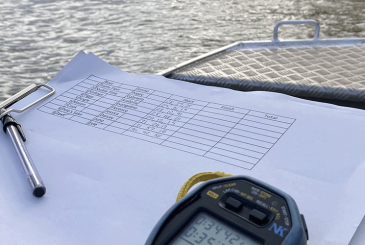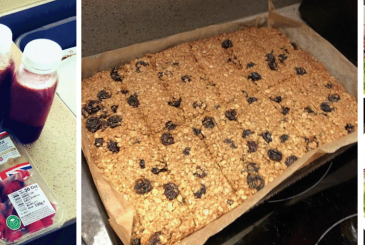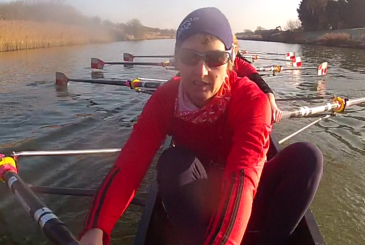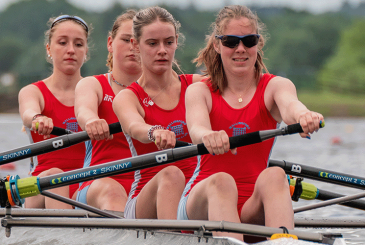Minty Cullinane from Junior Rowing News dispels some myths about volunteering and presents her case for why you should volunteer!
If you’re anything like me, you might just have shuddered a little at the sight of an article proclaiming the benefits of volunteering – I can’t blame you. For many young rowers, the first thing that comes to mind are visions of cold, damp and miserable Duke of Edinburgh expeditions.
For your consideration, I will today present the case that the future of volunteering in rowing is bright; moreover, that you would be remiss in failing to capitalise on the opportunities it can provide.
Here’s what we mean by ‘volunteering’ within rowing. It could include coaching, commentating, or event management — including exciting roles in race control and press operations – plus many other roles at clubs and within the rowing community.
At least two of the options mentioned above could include getting behind the wheel of a launch, which may prick the interest of some readers enough; if not, there are plenty of other motivations – many that you won’t have come across in a school assembly.
But, let’s begin with a fundamental question: Why bother volunteering?
Kicking off with the obvious, the benefits to your CV are blindingly clear. According to a Deloitte study, 82% of managers are more likely to choose a candidate with volunteering experience, with 85% of those willing to overlook other application flaws for a candidate that includes volunteer work.
“Rowing had given me so much that I didn’t want to lose touch with the friendships and support the sport gave me”
Volunteering encourages social interaction, providing simple but positive mental health support. Looking for more medical evidence? A 2011 Carnegie Mellon University study suggests that a moderate amount of volunteering can reduce your chances of hypertension (high blood pressure) in later life. If this is too much, take some consolation instead in the more obvious reasons, such as getting a front-row view of high-octane racing, that sweet CV boost, and spending time around like-minded people.
The proposals above may all sound a little nebulous, so let’s bring in Camilla Hadland, World Rowing commentator, who spoke with us to describe her reasons for volunteering in rowing after she stepped down from competing.

She says: “Continuing to put in the kilometres on the erg and on the water wasn’t as appealing anymore, but rowing had given me so much that I didn’t want to lose touch with the friendships and support the sport gave me.”
It’s a stellar argument for volunteering after you’ve stopped rowing if you want to continue to indulge in the atmosphere without the pressure of competitions. Whilst you’re there, you’ll develop a deeper understanding of the infrastructure that rigs our sport, a realisation familiar to the 2020 Volunteer of the Year, Ellen Mitchell, from Grosvenor Rowing Club.
Speaking to us, she explained how she “truly appreciated the enormous amount of work that goes on behind the scenes, so that athletes like me could simply turn up to row”.
So, assuming you’re now convinced, let’s get you involved!
The most apparent route would likely be to volunteer at races, but — for reasons that will remain unspoken — those opportunities might be a little thin on the ground for the time being. Commentating is similar, though, as competitions begin again, there will be plenty of time to get organised ahead of a return to racing.
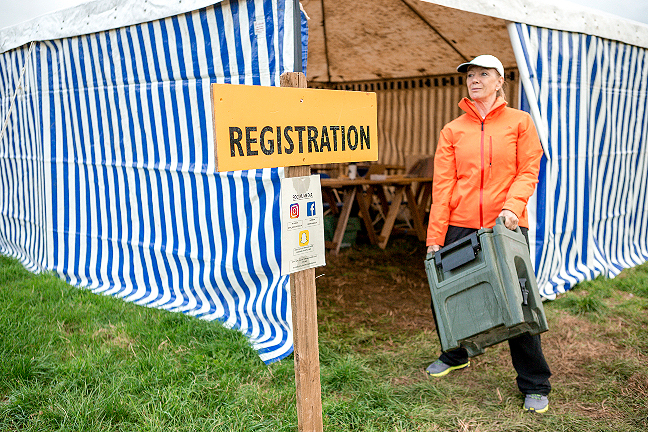
Putting yourself out there for event management now would get you ahead of the curve, and the volume of new considerations posed by COVID rules may create more demand for volunteers.
Another opportunity is to help with coaching – and additionally, this may allow the volunteer to improve their own rowing with a less punishing and more sustainable model.
As for how to get a position, a Google search is the most obvious way to job hunt. You should find yourself directed to the pages of major events where you can sign up for various roles. Visit the British Rowing volunteer page and keep a look out for opportunities on social media.
Putting yourself forward can lead to bigger and better things
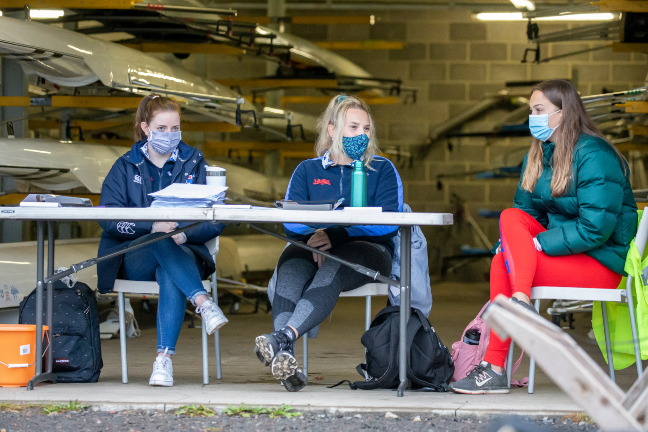
Word of mouth can also open up new doors of opportunity. Camilla says she got into commentating when she was contacted by a friend who was part of the organising committee for the BUCS Regatta.
However, you don’t have to be ‘in the know’ to land such a role with Robert Treharne Jones – The Voice of Rowing – running a commentary school to encourage fresh blood into the commentary team. Contact Robert to check for more details at [email protected]. Failing that, think back to the races you enjoyed being a part of and drop the organising committee an email: they’re always on the lookout for extra hands.
Indeed, putting yourself forward can lead to bigger and better things.
Camilla says: “Eventually, I was able to step up to the professional level of commentary with World Rowing. All of this stemmed from my involvement as a volunteer. It’s just the most fun to be around such fantastic people, and I’m truly grateful for all the opportunities it continues to give me.”
By volunteering in any role, you’ll find yourself in a position to give back to the community whilst building your experience, social network and expertise. Regardless of whether you aim to conquer the commentary tower or simply have fun at your local regatta, Ellen’s words are the perfect way to end.
She says: “A sense of community is even more important for our wellbeing during such uncertain times, so to safeguard a future in our sport I would encourage all rowers to share their skills and time. Future members will thank you.”
Photos: Drew Smith


